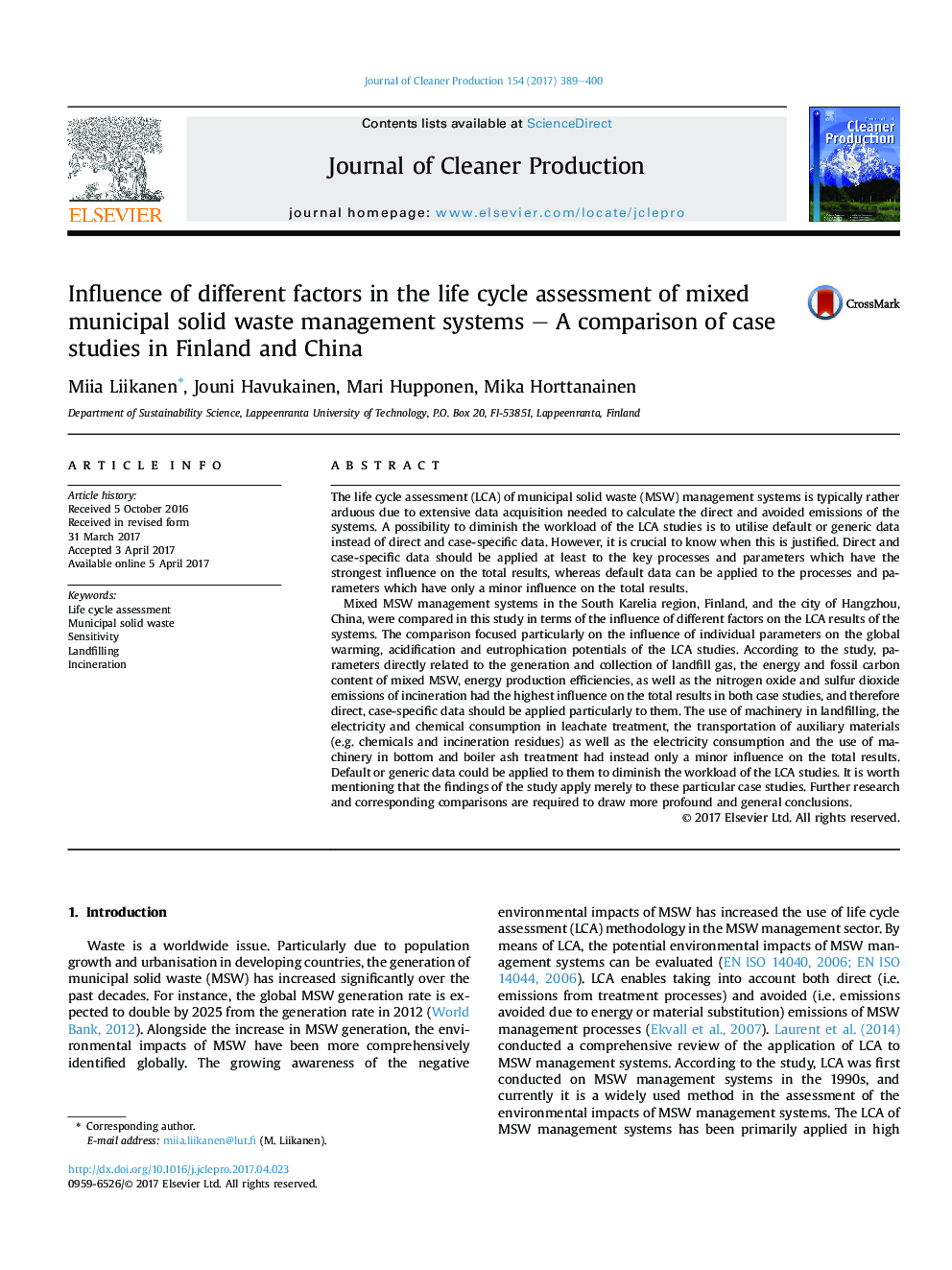| Article ID | Journal | Published Year | Pages | File Type |
|---|---|---|---|---|
| 5479750 | Journal of Cleaner Production | 2017 | 12 Pages |
Abstract
Mixed MSW management systems in the South Karelia region, Finland, and the city of Hangzhou, China, were compared in this study in terms of the influence of different factors on the LCA results of the systems. The comparison focused particularly on the influence of individual parameters on the global warming, acidification and eutrophication potentials of the LCA studies. According to the study, parameters directly related to the generation and collection of landfill gas, the energy and fossil carbon content of mixed MSW, energy production efficiencies, as well as the nitrogen oxide and sulfur dioxide emissions of incineration had the highest influence on the total results in both case studies, and therefore direct, case-specific data should be applied particularly to them. The use of machinery in landfilling, the electricity and chemical consumption in leachate treatment, the transportation of auxiliary materials (e.g. chemicals and incineration residues) as well as the electricity consumption and the use of machinery in bottom and boiler ash treatment had instead only a minor influence on the total results. Default or generic data could be applied to them to diminish the workload of the LCA studies. It is worth mentioning that the findings of the study apply merely to these particular case studies. Further research and corresponding comparisons are required to draw more profound and general conclusions.
Related Topics
Physical Sciences and Engineering
Energy
Renewable Energy, Sustainability and the Environment
Authors
Miia Liikanen, Jouni Havukainen, Mari Hupponen, Mika Horttanainen,
